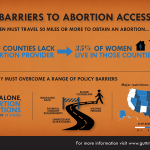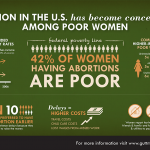 It happens with some regularity: Someone proclaims that college and university professors have easy jobs, are getting paid too much, and most recently, have the least stressful jobs.
It happens with some regularity: Someone proclaims that college and university professors have easy jobs, are getting paid too much, and most recently, have the least stressful jobs.
Then, college and university professors get wildly aggravated, defending their work lives, explaining once again that an hour in the classroom requires hours of preparation time, that each student requires hours of advising, that each advance in rank or salary requires hours/weeks/years of work on significant scholarly contributions, that each week on a campus requires hours of meetings related to faculty governance, and so forth.
And so here we are again. Inside Higher Ed has a pretty good round-up of the most recent chatter:
The original source of the controversy was a CareerCast study in which professors won the top rank of “least stressful jobs of 2013.” Among the findings by CareerCast: “University professors are at the pinnacle of the education field. Their students are largely those who choose the classes they attend, and thus want to be in class. Unlike elementary and secondary educators, the performance of college professors isn’t evaluated based on standardized tests. University professors also have the opportunity to earn tenure, which guarantees lifetime employment.” The study declared the median salary of faculty members to be $62,050, and gave the career a low stress score based on a methodology that factored in 11 criteria.
Two brief comments: First, that students “want to be in class” can only be said by someone who has never faced a room full of 19-year-olds taking an intro course for general education credit. Trust me, they’re not always thrilled to hear everything I have to say, and to do everything I require them to do. Second, a friend asked me if there was less stress post-tenure. I replied that no, there is not, and in many ways there is more and enhanced stress after earning tenure … a topic for another conversation.
Inside Higher Ed points out then where Forbes took it to a whole other level:
Based on the CareerCast study, Forbes then weighed in. “University professors have a lot less stress than most of us,” said the article. “Unless they teach summer school, they are off between May and September and they enjoy long breaks during the school year, including a month over Christmas and New Year’s and another chunk of time in the spring. Even when school is in session they don’t spend too many hours in the classroom. For tenure-track professors, there is some pressure to publish books and articles, but deadlines are few. Working conditions tend to be cozy and civilized and there are minimal travel demands, except perhaps a non-mandatory conference or two.”
And there it is. The summer off! A month off for Christmas and New Years! 
Fine. Spring semester classes start for me this week. So, here’s a partial list of what this professor actually did during her ‘month off’ between the fall and spring semesters this year:
- Read a book manuscript in proof stage, wrote and submitted an endorsement, and took notes for a future review.
- Crafted a document matching institutional general education categories to a national assessment tool for the curriculum committee I chair.
- Wrote & submitted recommendations for students.
- Attended a six-hour workshop on technology and information literacy in the classroom (first pic above – I’m in white back there trying to figure out what a Google hangout is).
- Met with a colleague to discuss the faculty mentoring program we co-direct.
- Found and ordered a desk copy of the new edition of a book I am using this semester.
- Met with the dean as program chair to discuss staffing courses in an upcoming semester.
- Revised three syllabi substantially in preparation for this spring semester.
- Emailed with three guest speakers to arrange their contributions to a class this semester.
- Created a syllabus and completed four separate forms to get a first year learning community approved for the subsequent semester.
- Communicated with a journal editor about an article submission.
- Conferred via phone with a conference organizer about my speaking at an upcoming regional conference.
- Emailed with several advisees about changes in their academic programs.
- Responded to multiple student requests to get into a class I am teaching this spring that is already full.
- Wrote and published around twenty pieces here at Patheos.
To be clear, about 60% of this work I did in pajama pants and in my living room (see second pic above, actually that’s my dining room, and yes, I was wearing a Snuggie). Some of it I did at the coffee shop near my parents house while we were visiting family for a week around Christmas. And yes, I might have had a meeting or two at a local restaurant. Is that all part of the ridiculous privilege that I enjoy? Yes it is. Do I have job security in this fragile and changing economy? For now, yes. Because it is also true that I have known more than one tenured faculty member to lose a job amidst institutional transformation, financial emergency, or other catastrophic situation.
No one wins when we play the “who has a harder/more stressful job” game. I am in no way saying that I work harder or better or suffer more anxiety than any other working person in this world. And I am fully aware of the manifold privileges that I enjoy because of what I do and who I am.
But what I will never understand why there are always people who have no idea what I do deciding that I don’t do much. I would never look at a tax accountant and make proclamations about what her life is like. I have never declared that car mechanics have easy jobs. I’ve never even said that lawyers get paid too much.
And yet the month of time between my semesters of teaching is called a “month off.”
Umm … I beg to differ.
Now, did you want to hear about my summer?












